News
‘Abolishing provincial councils is like playing with fire’ : Maithripala Sirisena
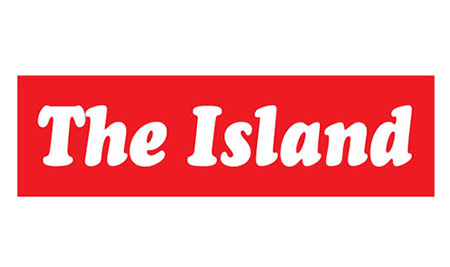
Former President Maithripala Sirisena gave an interview to India’s The Hindu newspaper recently. Given below are some excerpts of the interview that appeared on 30 December 2020.
Q: You say you are open to two options ahead of the provincial council elections when they are held. Some within the government want the provincial councils abolished, while the Prime Minister asked officials to expedite arrangements. Some others want the elections held after the proposed new Constitution is out. How do you view these contradictory positions within the government?
A:
We have had the provincial council system for over 30 years now. We haven’t seriously evaluated if they have been successful in serving the purpose they were supposed to. The government should analyse if the councils have actually served our people. I believe there are some amendments needed in the provincial council system. One of the main problems is that of the total allocations to the provincial councils annually, only 25 % or so goes into the actual development of the provinces. Nearly 75 % goes towards salaries, vehicles, telephone and electricity bills. There is an excessive number of employees in the provincial councils.
When the central government pumps in money into the provincial councils, it is done as an investment for the development of the country. However, the return on such investment has been less. So we need to reduce wasteful expenditure, perhaps by reducing the number of councillors and employees, in order to increase the return on investment. There are differences within the government, and it is upto the government to decide on the right course of action.
From a development perspective, I think a set up at the district-level, like a District Development Board, would work better than the provincial councils, given the fact that we are a small country. You can set up a development board at the district level, comprising members of Parliament representing the district, chairpersons and mayors of local government authorities. For a big country like India, a provincial system is good, but we are a country of 21 million.
Q: So how would you respond to those within government, calling for the abolition of provincial councils established pursuant to the 13th Amendment to the Constitution?
The 13th Amendment is a product of the Indo-Lanka Accord of 1987. The Provincial Councils Act is a product of the 13th Amendment. So, I know it is not that easy to abolish provincial councils. India could get a little upset with us if we completely do away with the 13th Amendment. In our region, the friendship with India is very important to Sri Lanka. The friendship between the two countries is of utmost importance and should be strengthened by all governments. Abolishing provincial councils is like playing with fire.
At the same time, the 30 year-experience of running provincial councils has not yielded desired results in terms of developing all parts of the country. That is why it is important that we arrive at a compromise with understanding. As I mentioned, creation of the provincial councils was an investment, we have been keeping them going for 30 years, and when they don’t yield the benefits that were expected in terms of development, people and the government should take a fair decision.
Q: You keep referring to democracy. In your recent speech too, you spoke of many governments sliding towards authoritarianism, where rights of minorities are under threat. How do you see the Sri Lankan context in that respect?
A:
As a majority ethnic group, it is our responsibility to seriously think about the minorities who form part of this country all the time. It is a fact that in Sri Lanka the Sinhalese are the majority. Bearing that in mind, we must ensure Tamils, Muslims and Burghers have equal rights as minorities.
For example, take the issue of mandatory cremation of victims of Covid-19. Muslims must be given the right to bury their relatives who succumbed to it. The WHO [World Health Organization] says it is possible to bury. As a former Minister of Health, I stand by the opinion of the WHO.
You cannot develop the country when the sentiments of minority communities are hurt. We have to ensure that democracy and economic development are shared equally by all ethnic groups in this country.
Buddhist philosophy offers us ample guidance on the principle of equality. There were hundreds of religions and languages in India when the Buddha was born. Although there were hundreds of religions and languages, the Buddha, when he began preaching the religion, had no problem with any other religion or community. He continued preaching without any conflict with other religions.
You spoke about the importance of the friendship between India and Sri Lanka. When you came to power in 2015, you vowed to follow a neutral foreign policy, and reset relations with many partners. How do you evaluate the foreign policy choices of this government?
It appears to me that the government has a good relationship with India. I am happy about that. The principle of non-aligned foreign policy was introduced to then Ceylon by S.W.R.D. Bandaranaike, the leader of my party, in 1956. I believe all governments that come to power in Sri Lanka should stick to a non-aligned foreign policy.
Q: Do you have any regrets about your time in office?
I believe the people of Sri Lanka still enjoy the freedoms and the democracy that I won for them. The Right to Information Act passed during my term was a historic move. The powers given to the independent commissions and the people were significant. I pursued a 360 degree-friendship foreign policy. I pursued strong friendship with all countries — US, China, Russia, India, Japan, Pakistan.
It is not easy to be the President of a country [laughs]. I could balance everything only because of my over 50 years’ experience in politics. I am happy with what I did, they were done with good intentions. I have some regrets about the things I could not do. The internal strife within the government held me back from delivering on some things.
No leader ever goes home after his time in office after completing all that he intended to. When a parent passes away, a lot of children worry that they could have cared more about their parents. Similarly, when a really patriotic leader leaves office, he leaves with the feeling that he couldn’t do enough for the country. I am also like that.
Q: Anything you did that you regret?
A:
No, I am happy with everything I did. I did everything with good intentions. My time in office is historic for the fact that no government-owned rifle ever shot at a citizen. During my time, there were protests every day on the streets, by students, by workers. I had ordered the police and army not to ever resort to shooting. I told them they could take legal action later, but should never fire a single shot, even though the protests gave me a lot of mental agony. That is one of my greatest achievements as a leader.
In my time, I launched five major projects like the anti-drugs campaign, the environment programme, children’s programme, a programme for those suffering from kidney ailments – there are 5,000 new patients every year — and then one to enhance local food production. I am happy about those.
News
Prime Minister Attends the 40th Anniversary of the Sri Lanka Nippon Educational and Cultural Centre
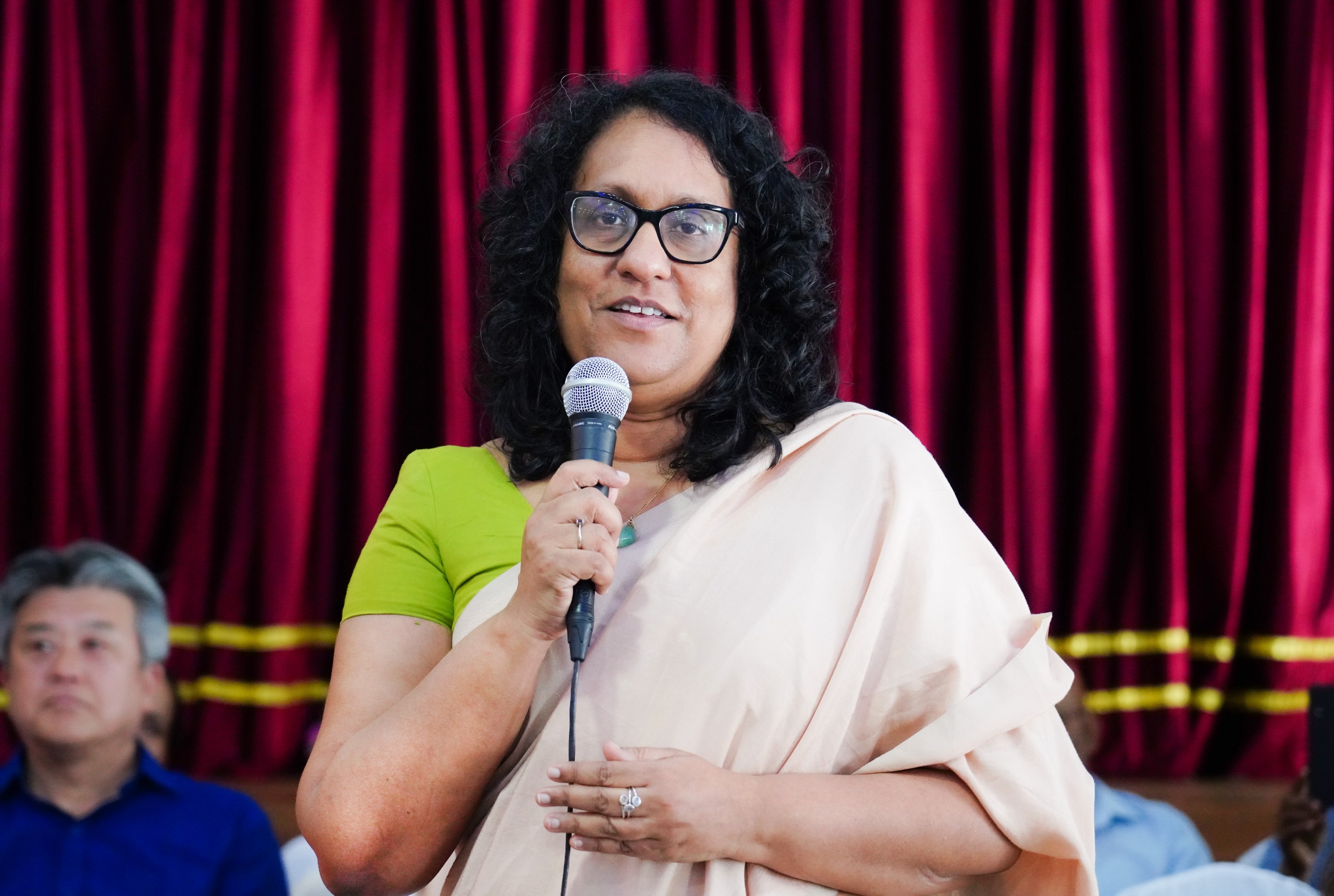
Prime Minister Dr. Harini Amarasuriya attended the special ceremony marking the 40th anniversary of the Sri Lanka Nippon Educational and Cultural Centre (SNECC), along with the 75th birthday of its Secretary General, the Chief Incumbent of Sri Mahindaramaya, Ethul Kotte, the Chief Sangha Nayake of the Western Province, and scholar Ven. Meegahathenna Chandrasiri Thero.
The primary objective of the event was to appreciate the service rendered by the Sri Lanka Nippon Educational and Cultural Centre, which has functioned as a bridge between Japan and Sri Lanka since 1986, contributing significantly to the development and welfare of children in Sri Lanka.
Addressing the gathering, the Prime Minister stated that the social service carried out by Ven. Meegahathenna Chandrasiri Thero through the Nippon Centre, aimed at fulfilling the educational aspirations of Sri Lankan children, is highly commendable. She further emphasized that the Centre’s contribution to nurturing skilled children into disciplined and responsible citizens, as well as strengthening cultural ties between the two countries, is appreciated by the Government.
Over the past four decades, thousands of students have benefited from the “Nippon Scholarship” programme implemented by the Centre. In addition to providing school supplies, monthly financial assistance, medical support, and spectacles, the programme offers Japanese language education and guidance for employment and training opportunities in Japan for Sri Lankan youth. Annual study tours to Japan and collaborative programmes organized to enhance mutual understanding between students of the two countries were also highlighted at the event.
Marking this special occasion, the Prime Minister extended her best wishes to Ven. Meegahathenna Chandrasiri Thero on his 75th birthday and wished him continued strength to successfully carry forward this invaluable service.
The event was attended by the Mayor of Kotte, Arosha Atapattu, representatives of sponsoring organizations from Japan, scholarship recipients, and other distinguished guests.
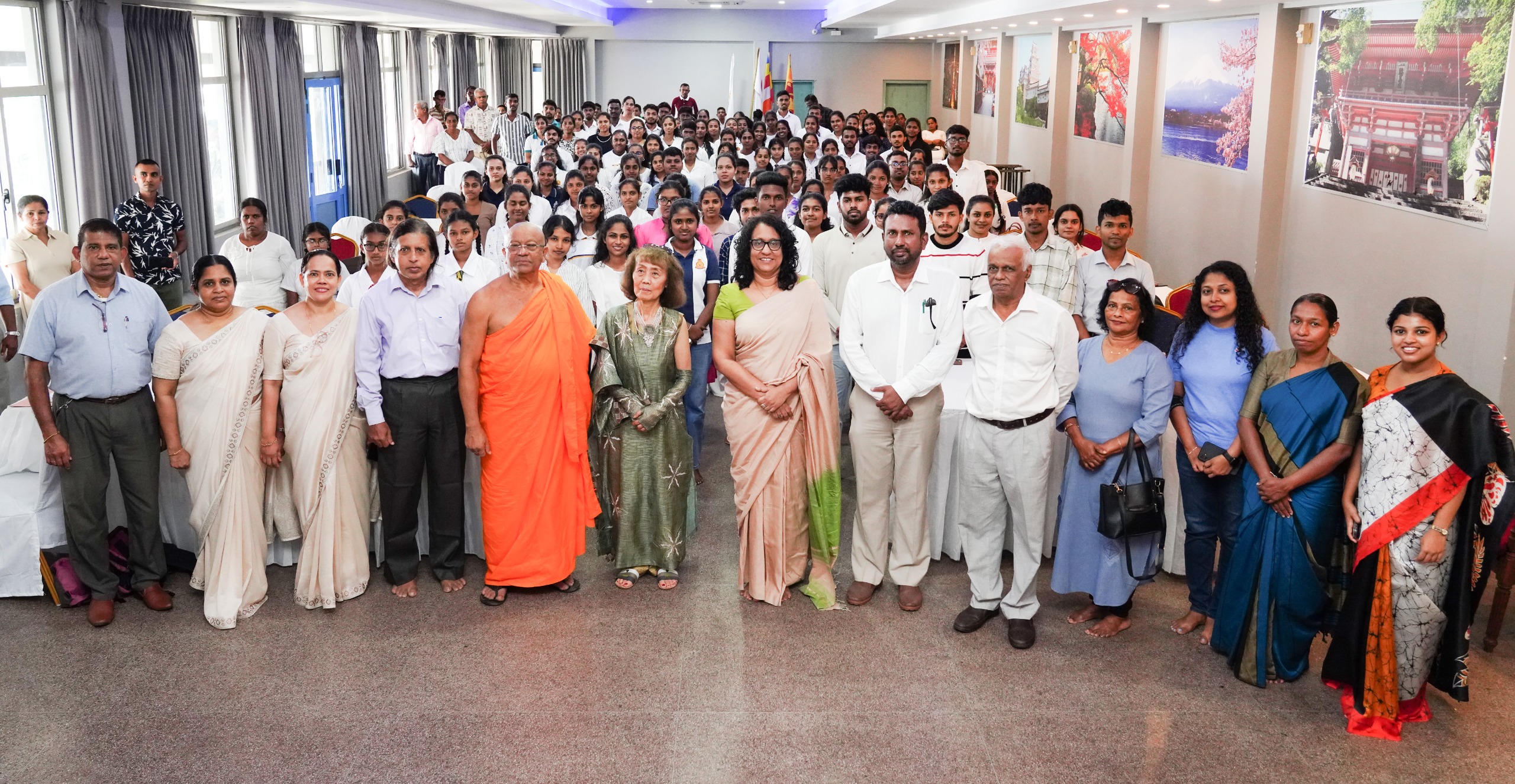
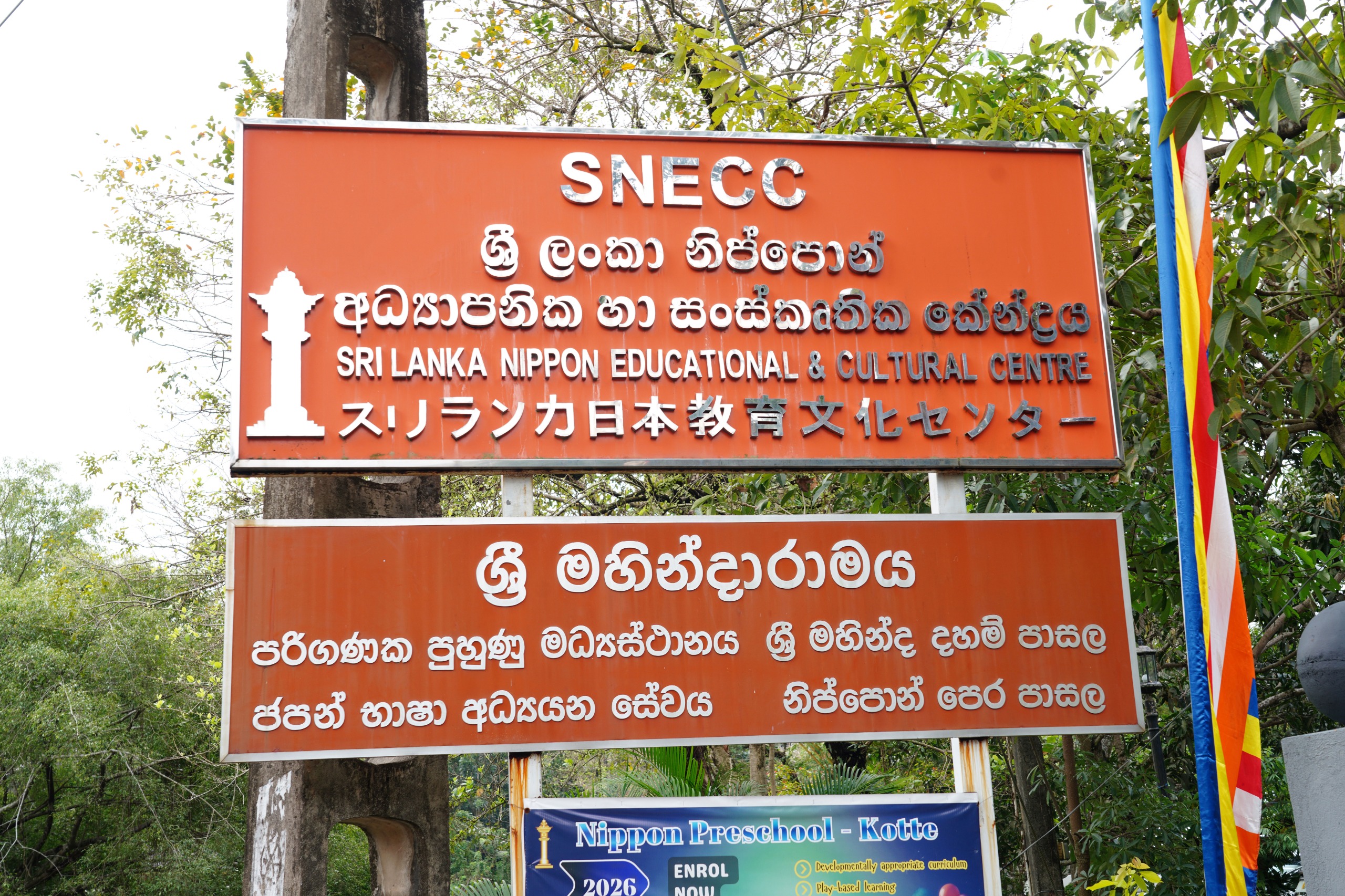
[Prime Minister’s Media Division]
Latest News
Navy’s latest addition P 628 sails for Colombo from Baltimore

The Offshore Patrol Vessel P 628, which was formally handed over to the Sri Lanka Navy by the U.S. Coast Guard in December 2025, departed for Sri Lanka from Baltimore, United States on 20th February 2026. The home bound journey began, after the modernization work of the ship to suit the operational needs of the Sri Lanka Navy.
The EX-United States Coast Guard Cutter, USCGC Decisive was officially handed over to the Sri Lanka Navy on 02 Dec 25, as the latest addition to the SLN fleet under the Pennant Number P 628. Upon her arrival in Sri Lanka, the ship is scheduled to be formally commissioned into the fleet.
Measuring 64 metres in length, this ‘B-Type Reliance Class 210-foot Cutter’ is equipped with advanced technological systems and facilities, capable of conducting extensive surveillance operations spanning up to 6,000 nautical miles per patrol.
The vessel’s voyage to Colombo is historic, possibly marking the longest-ever passage undertaken by a Sri Lanka Navy ship. Covering approximately 14,775 nautical miles, the journey will see the P 628 navigate from Baltimore through the Atlantic Ocean, the Panama Canal (a first for a Sri Lankan naval vessel), the Pacific Ocean, and into the Indian Ocean via the Straits of Malacca. The ship is expected to arrive in Sri Lanka during the first week of May 2026.
During the transit, the P 628 is scheduled to make port calls to replenish supplies and services, providing opportunities to further strengthen diplomatic ties with partner nations.
This transfer represents the fourth vessel provided to the Sri Lanka Navy by the United States Coast Guard, reinforcing a long-standing partnership aimed at addressing common maritime challenges.
News
Commander of the Navy attends International Fleet Review
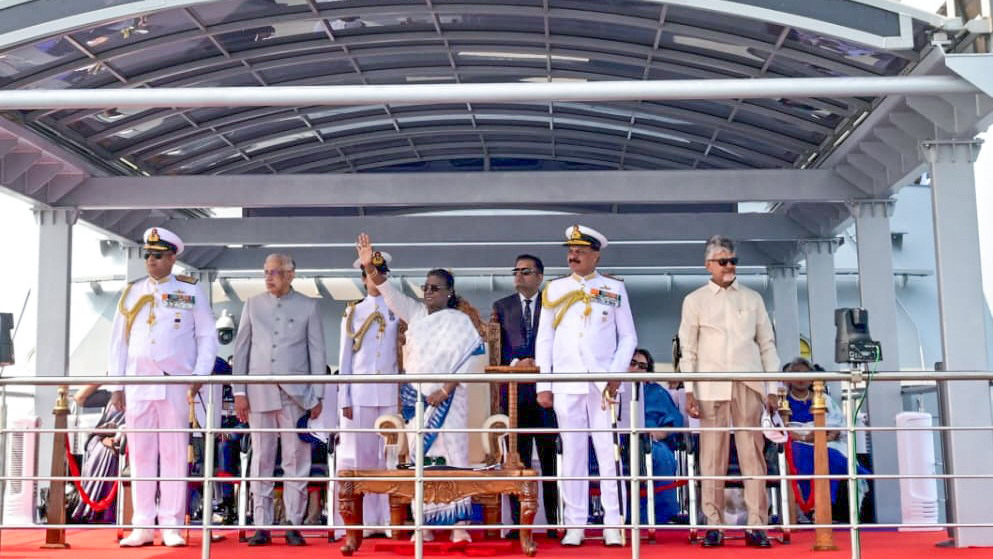
The 13th edition of the multilateral naval exercise MILAN hosted by the Indian Navy, is being held from 18 to 26 Feb 26, at Visakhapatnam and in the waters of the Bay of Bengal.
SLNS Sagara and Nandimithra represented the Sri Lanka Navy by participating in the International Fleet Review (IFR), a major component of this multilateral naval exercise, held on 18 Feb.
The event was attended by the Commander of the Sri Lanka Navy, Vice Admiral Kanchana Banagoda, at the invitation of the Chief of the Naval Staff of India, Admiral Dinesh K Tripathi. The President of India reviewed the IFR, participated by the warships representing regional and global navies.
Held under the theme “United Through Oceans and the spirit of Camaraderie Cohesion Collaboration,” IFR and MILAN-26 provide a vital platform for participating nations. The participation of the Sri Lanka Navy in the MILAN-26 multilateral naval exercise highlighted Sri Lanka’s commitment to advancing its maritime interests and addressing shared challenges through enhanced cooperation with other nations and institutions, grounded in mutual understanding.
Furthermore, participation in endeavours of this nature will strengthen mutual cooperation and interoperability with other maritime stakeholders. It will also provide the Sri Lanka Navy with valuable opportunities to gain new knowledge, strategic acumen, and operational experience, key elements in fostering a collective approach to maritime security.
During this visit, the Navy Commander engaged in bilateral discussions with regional and extra-regional diplomatic representatives and these strategic-level talks focused on matters of mutual interest pertaining to Sri Lanka’s maritime security and stability.
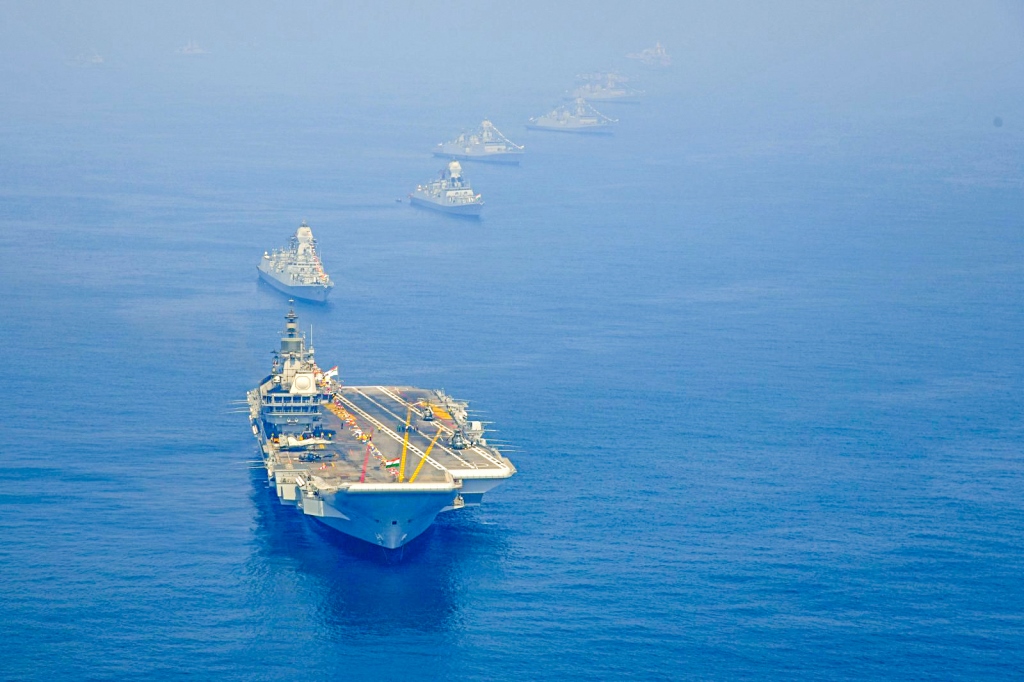
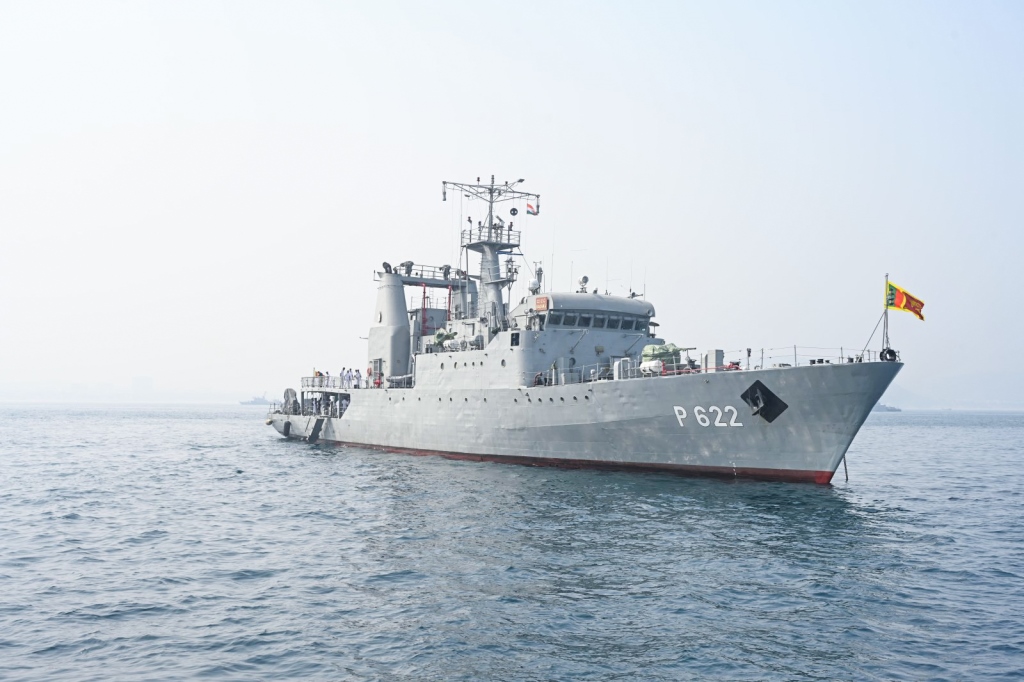
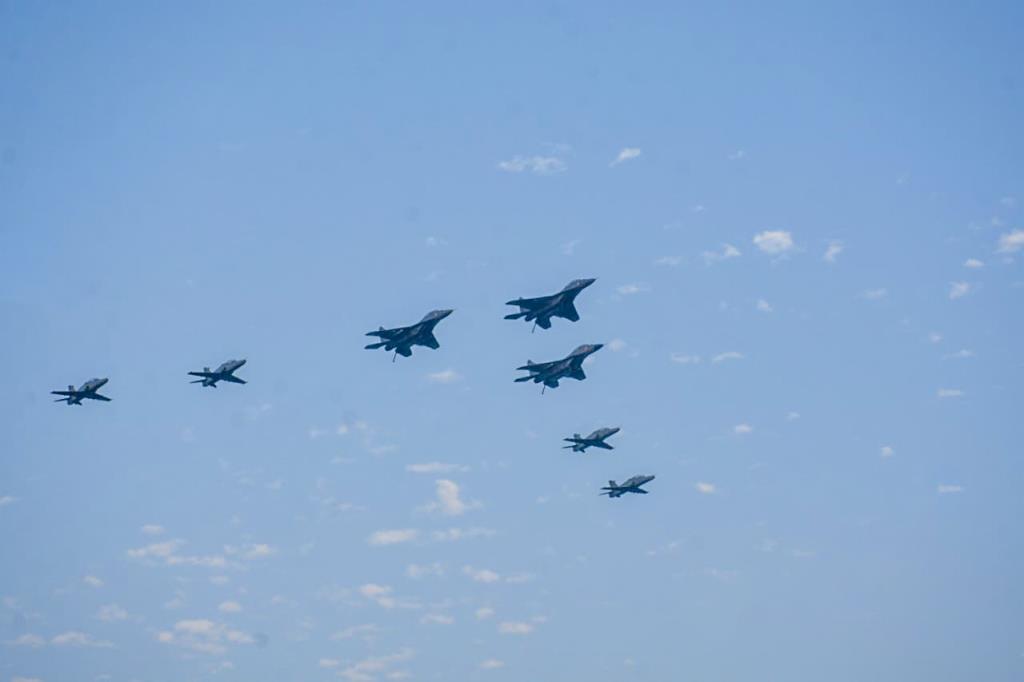
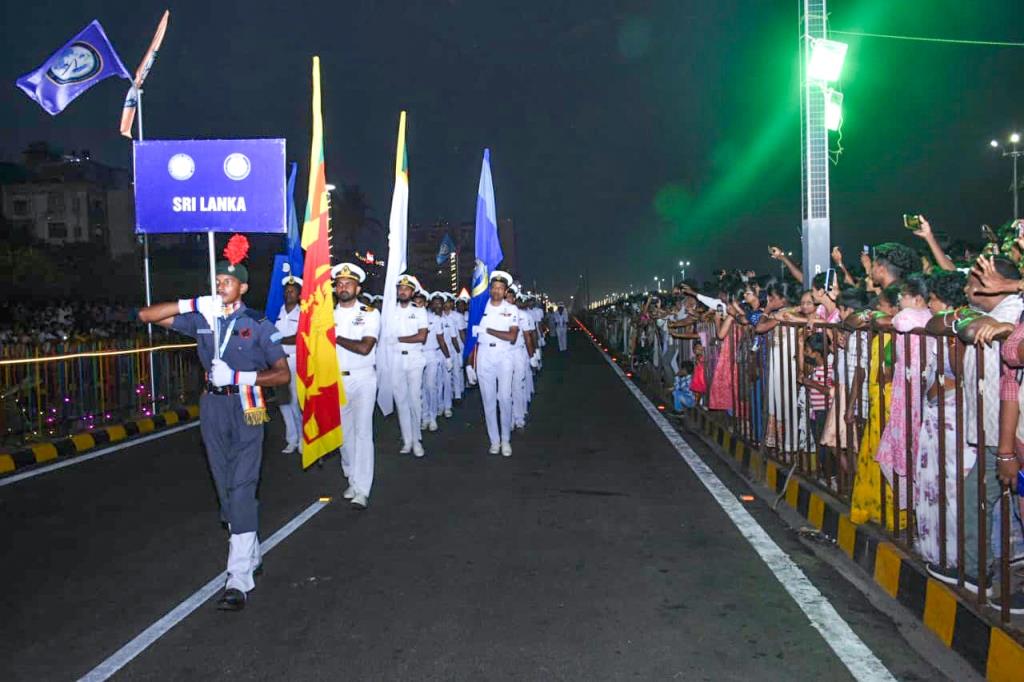
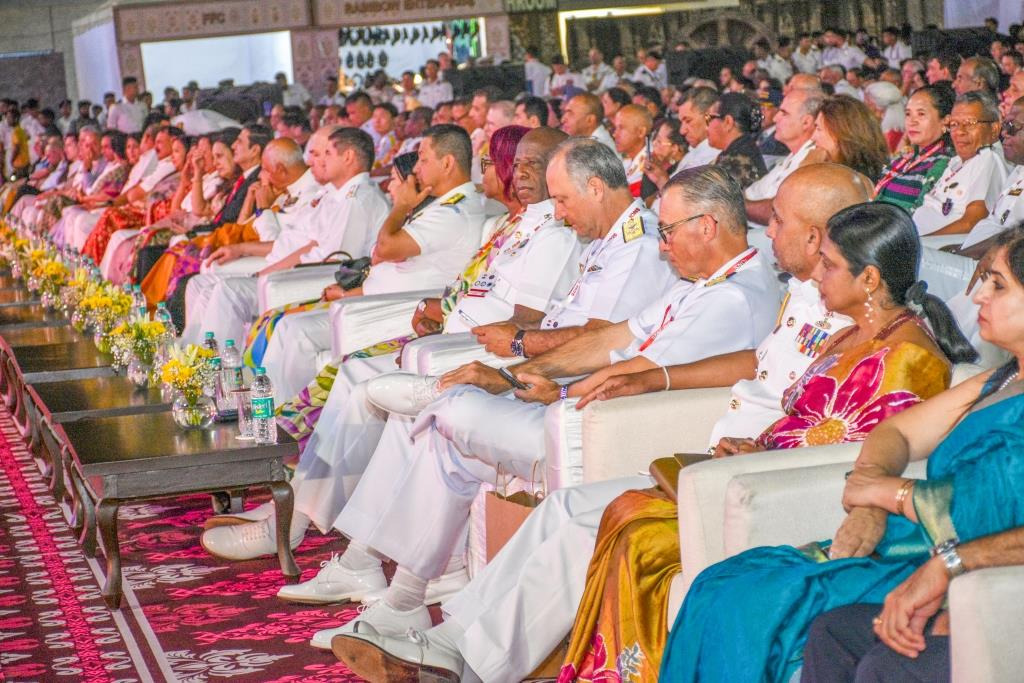
[Navy Media]
-

 Features2 days ago
Features2 days agoWhy does the state threaten Its people with yet another anti-terror law?
-

 Features2 days ago
Features2 days agoVictor Melder turns 90: Railwayman and bibliophile extraordinary
-

 Features2 days ago
Features2 days agoReconciliation, Mood of the Nation and the NPP Government
-

 Features2 days ago
Features2 days agoVictor, the Friend of the Foreign Press
-

 Latest News3 days ago
Latest News3 days agoNew Zealand meet familiar opponents Pakistan at spin-friendly Premadasa
-

 Features15 hours ago
Features15 hours agoLOVEABLE BUT LETHAL: When four-legged stars remind us of a silent killer
-

 Latest News3 days ago
Latest News3 days agoTariffs ruling is major blow to Trump’s second-term agenda
-

 Latest News3 days ago
Latest News3 days agoECB push back at Pakistan ‘shadow-ban’ reports ahead of Hundred auction













